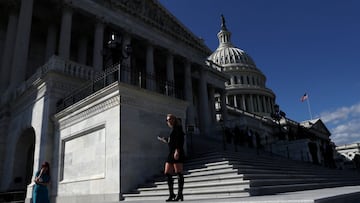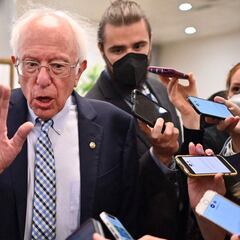What will the impact of the spending shutdown bill be for taxpayers?
The passing of the temporary spending bill has saved many taxpayers from a funding fall off, ensuring payments continue for federal plans.


In the nick of time, all of Congress managed to pass the stopgap funding bill before the midnight deadline, preventing a government shutdown. Those who would have been impacted the most would have been normal Americans, potentially locked out of both benefits and national parks.
But with the funding only being temporary, these problems could resurface at the start of December. Compounding that, the impending debt default could lead to a recession as billions is wiped off of the US's value. For now that is tomorrow's problem, and Congress should address the problems in time.
U.S. Treasury Secretary Janet Yellen warns against a debt default, saying this will lead to higher interests costs of debts pic.twitter.com/6L3YOP087t
— Reuters (@Reuters) September 30, 2021
What was going to be affected by the shutdown?
We had an article earlier this week which detailed some of the areas that a lockdo0wn would affect. These included, but are not limited to:
- Buying a house
- Getting a loan for small businesses, as happened in previous lockdowns. Makes sense when the government doesn't have enough money to fund itself, let alone others.
- National parks, the last lockdown saw some stay open, but as maintenence was not running, and the rubbish not collected, they were in a sorry state.
- Passport renewal, some of this process is funded by fees, but a lack of federal workers would eventually take its toll.
- Social security and Medicare, payments were set to continue, but there were warnings of big delays caused by the shutdown.
- Postal services, the service reported earlier this week that "delivery standards would slow for some patrons beginning on Friday."
But with the shutdown averted, these events will not come to pass, at least not yet.
So we don't need to worry, right?
The stopgap bill that was passed on Thursday evening is exactly that, stopgap. It lasts for nine weeks, through to December 3. Then, once again, a debt suspension will need to be negotiated.
Let's not forget Leader McConnell has voted to increase or suspend the debt ceiling 32 times in the past – including 3 times under Trump. But now he and the rest of the Congressional GOP refuse, risking catastrophic default.
— Sean Patrick Maloney (@RepSeanMaloney) September 29, 2021
Related stories
A financial crisis that would affect you as a taxpayer more is the impending debt default. If the debt ceiling is not lifted by October 18, then the US would default on its external debt for the first time. With so many countries' invested in the US economy, it could cause a general recession globally.
Of course, a recession could lead to job losses and business closures. Neither of the bills in Congress right now, the infrastructure or reconciliation bills, have provisions for an increased unemployment rate. Job growth was slow last month and there is still a pandemic circulating around the US that is only going to get worse toward winter.

